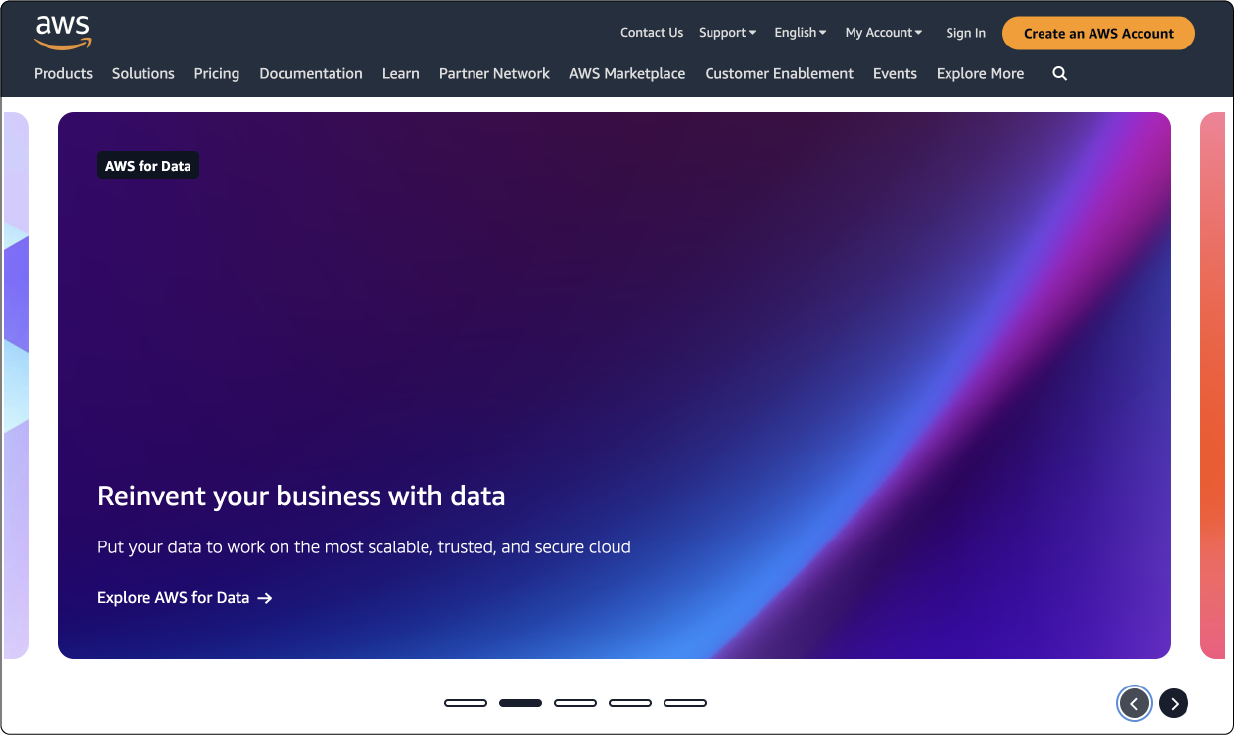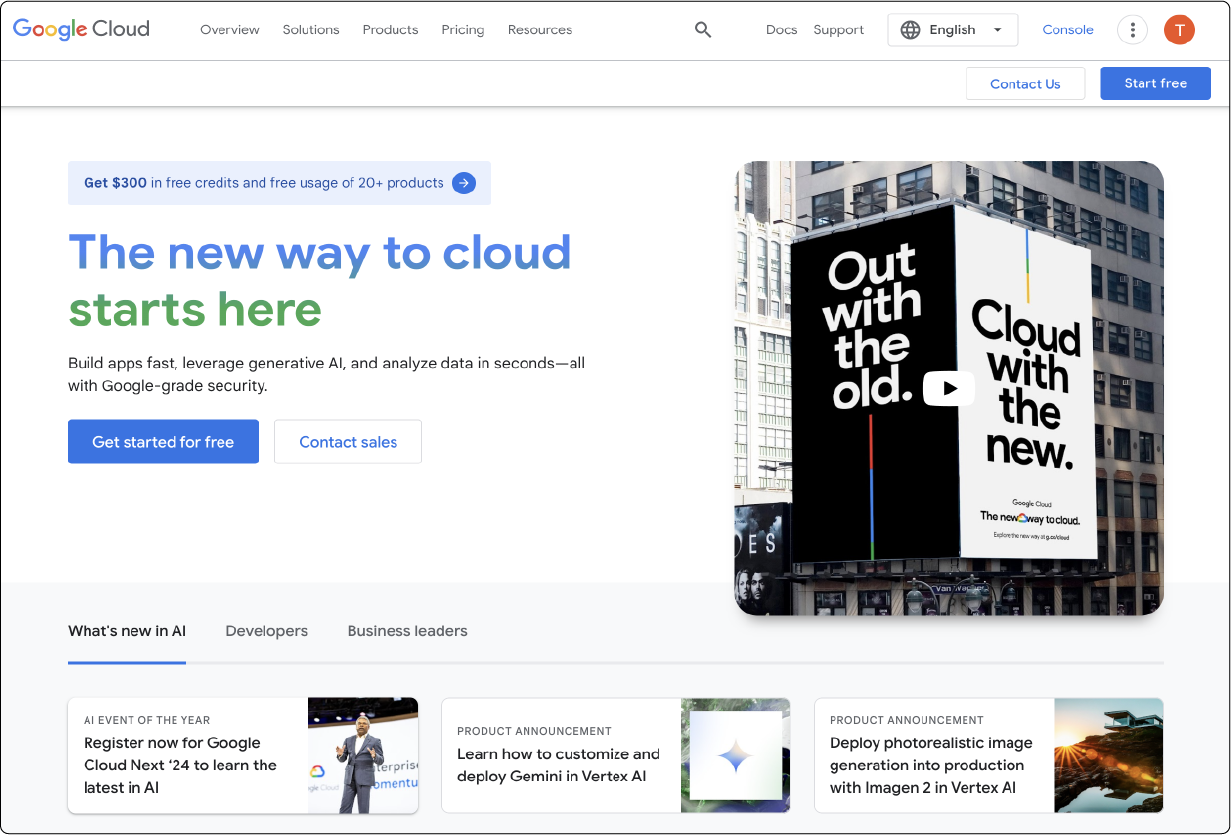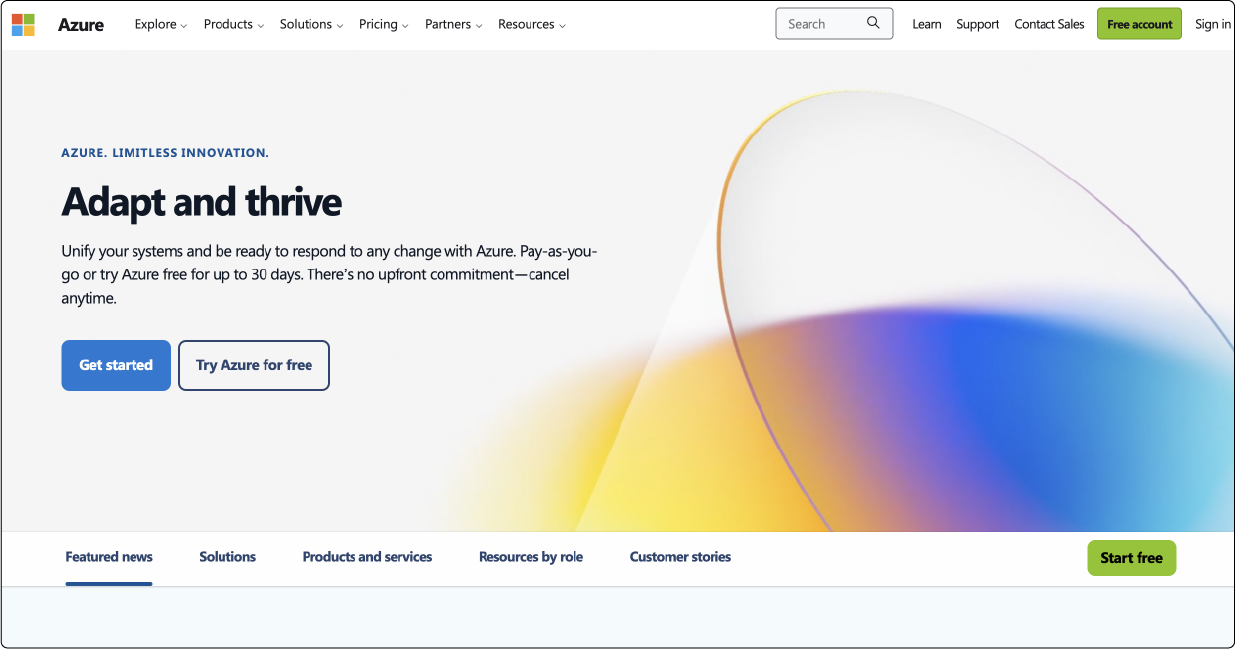
Magento Hosting Providers: Best Scalable Cloud Servers
Researching and selecting the best cloud server for a smooth Magento hosting experience is a priority for any ecommerce business. The top public cloud providers offer technically sound solutions suited to your business needs. Let’s find out why you need cloud servers for Magento stores, compare public cloud providers and their offerings.
Key Takeaways
-
Cloud servers offer superior features for managed Magento hosting.
-
Read about reasons why we need cloud servers for managed Magento stores
-
Research into top options like AWS, GCP, Azure, and DigitalOcean.
-
Prioritize features like performance, scalability, security, and reliability in a cloud provider.
-
Learn how cloud hosting benefits your store with a managed Magento solution.
Why do you need Cloud Servers for Managed Magento Stores?
Cloud services are gaining traction for Magento hosting due to several key benefits:
1. Global Reach: Cloud servers offer geographically distributed data server locations, allowing Magento stores to cater to audiences worldwide.
2. Disaster Recovery: Cloud infrastructure provides built-in redundancy and disaster recovery features. This ensures your Magento store remains operational even if a single data center experiences an outage.
3. High Performance: Powerful hardware and infrastructure lead to faster loading times and high performance for a seamless user experience.
4. Reliability: High uptime guarantees and redundancy features ensure your store stays online despite hardware failures.
5. Development and Testing: Cloud servers offer a flexible and cost-effective environment for developers to create and test Magento stores.
6. Enhanced security: Cloud providers invest heavily in security measures to protect your Magento store and customer data.
7. Integration with DevOps tools: Cloud platforms often integrate seamlessly with various DevOps tools and automation scripts. It allows for efficient deployment, management, and monitoring of Magento stores.
8. Flexible options: Choose the server configuration that best suits your specific needs and allows you to adapt as your store grows.
Best Public Cloud Providers for Magento Hosting
1. Amazon Web Services (AWS)

A comprehensive and mature cloud platform offering various services, including scalable, secure, and reliable server options for ecommerce stores. It perfectly aligns with what one would expect from the best Magento hosting provider. Below is a close look at the features:
1. Scalability:
- Amazon Elastic Compute Cloud (EC2): EC2 Provides virtual servers with various CPU (cores), RAM (GiB), and storage (EBS volumes) configurations, akin to the customizable plans of a VPS hosting service.
- Auto Scaling: It is a feature that allows auto scaling of resources based on predefined rules.
2. Security:
-
AWS Security Best Practices: AWS provides security best practices and services like Identity and Access Management for user access control and encryption. Security Groups and Network Access Control Lists (ACLs) restrict network traffic.
-
Compliance: Supports industry compliance certifications relevant to e-commerce, such as PCI DSS, to secure payment card data for Magento
3. Reliability:
- Redundant Infrastructure: AWS utilizes geographically distributed data centers with redundant components (power, network, storage) to minimize downtime.
- Amazon Route 53: Highly available Domain Name System (DNS) service that routes traffic to healthy instances even if one Availability Zone experiences an outage.
4. Performance:
- High-Performance Instances: Offers various instance types with CPU architectures (Intel, AMD), clock speeds, and memory configurations.
- Amazon CloudFront: Content Delivery Network (CDN) service that caches static content globally, reducing latency and improving website loading times.
5. Magento-Friendly Solutions:
- AWS Marketplace: Offers pre-configured Magento solutions from various vendors, including server images with pre-installed Magento software.
6. Integration with Other Services:
- AWS Marketplace: Offers a vast selection of third-party software solutions for Magento hosting providers. You can find payment gateways (e.g., Stripe, Authorize), analytics tools (e.g., Amazon Kinesis), and marketing automation platforms to integrate with your store running on AWS.
2. Google Cloud Platform (GCP)

Another leading cloud provider offering scalable and secure infrastructure solutions for Magento stores. GCP is known for its expertise in containerization technologies like Kubernetes for complex Magento deployments.
1. Scalability
-
Google Kubernetes Engine (GKE): Manages containerized workloads like Magento applications. Containers isolate applications and their dependencies, enabling scalability and efficient resource utilization.
-
Multi-layered security approach: GCP employs various security features, including:
-
Cloud Identity and Access Management (IAM): Controls access to GCP resources and defines user permissions.
-
Cloud Key Management Service (KMS): Manages and protects encryption keys for data security.
-
Cloud Security Command Center (SCC): Provides security insights and recommendations to help you identify and address potential security risks.
-
Threat detection and prevention: GCP offers services like Cloud Armor (web application firewall) and Cloud IDS (intrusion detection system) to protect against malicious attacks.
2. Reliability
- Regional and multi-regional deployments: You can deploy your ecommerce store in a single region or across multiple regions for increased fault tolerance and disaster recovery capabilities.
3. Performance:
- High-performance compute options: Offers various machine types with different CPU architectures, core counts, and memory configurations.
- Cloud CDN is essential for Magento web hosting to ensure fast content delivery. Content Delivery Network service that caches static content globally, reducing latency and improving website loading times for users worldwide.
4. Magento Expertise:
- GCP Marketplace: Offers pre-configured Magento solutions from various vendors, highlighting the convenience of Magento 2 hosting.
- Documentation and resources: GCP provides dedicated documentation and best practices for deploying.
5. AI and Machine Learning Integration:
- Vertex AI: Provides tools for building, training, and deploying machine learning models.
- Recommendations AI: Personalizes product recommendations for your store visitors.
- Cloud Functions: Serverless environment for deploying small, event-driven functions.
3. Microsoft Azure

A popular cloud platform that offers various server options and tools for Magento hosting. Azure is particularly strong in hybrid cloud deployments for businesses with existing Microsoft infrastructure.
1. Scalability:
- Azure Virtual Machines (VMs): Provides various VM sizes with different CPU (vCPU cores), RAM (GiB), and storage configurations. You can scale up or down typically via the Azure portal or API.
- Azure App Service: Platform as a service (PaaS) for deploying and managing web applications. While not ideal for complex Magento deployments, it can be suitable for smaller stores or those seeking a more managed experience.
2. Security:
- Azure Active Directory (AAD): Cloud-based identity and access management service controlling access to Azure resources and applications.
- Azure Security Center: Provides security insights, threat detection, and vulnerability management for your Azure resources.
- Azure Key Vault: Securely stores and manages cryptographic keys for data encryption.
3. Reliability:
- Availability Sets and Availability Zones: You can deploy your ecommerce store across multiple Availability Sets or Zones within a region.
4. Performance:
- High-performance VMs: Offers various VM series with different CPU architectures (Intel, AMD), core counts, and memory configurations.
- Azure CDN: Content Delivery Network service that caches static content globally, reducing latency and improving website loading times worldwide.
5. Magento-Friendly Tools:
- Azure Marketplace: Offers pre-configured Magento solutions from various vendors. This includes pre-installed Magento on VMs and sometimes additional tools or integrations.
- Microsoft documentation: Provides resources and documentation specific to deploying and managing Magento stores on Azure.
6. Integration with Microsoft Products: Azure integrates seamlessly with other Microsoft products like:
- Office 365: Enables single sign-on for users and simplifies collaboration.
- Dynamics 365: Enables integration with CRM and ERP functionalities for comprehensive business management.
4. DigitalOcean

A cloud provider is known for its user-friendly interface and affordable pricing. DigitalOcean offers a good balance of performance, scalability, and cost-effectiveness for Magento stores.
1. Scalability:
- Droplets: DigitalOcean's primary server offering. They are essentially virtual machines with varying CPU (vCPUs), RAM (GiB), storage (SSD disks), and bandwidth configurations.
- You can scale vertically by upgrading to a Droplet with higher resource allocations or horizontally by creating additional Droplets. This can be done through the DigitalOcean control panel or API.
2. Security:
- Firewalls: Droplets come with built-in firewalls that allow you to control inbound and outbound traffic.
- Automated backups: DigitalOcean offers automated backups of your Droplets at regular intervals, allowing you to restore your data.
- SSH access: Secure Shell (SSH) access provides remote access to your Droplet for server management tasks. However, managing server security effectively requires knowledge of best practices for system administration.
3. Reliability:
- Block storage: DigitalOcean offers separate block storage volumes independent of Droplets, providing additional storage scalability and redundancy.
4. Performance:
- Solid-state drives (SSDs): All Droplets come equipped with SSDs, offering significantly faster storage performance than traditional hard disk drives (HDDs).
5. Community-Driven:
- DigitalOcean Community: A large and active online forum where users can find solutions, share knowledge, and get help with various technical issues.
6. Simple Pricing:
- Hourly billing: DigitalOcean charges a fixed hourly rate based on the chosen Droplet configuration (CPU, RAM, storage).
What makes cloud hosting different?
Let's break down and examine traditional hosting vs. cloud hosting and explore the various benefits of cloud hosting.
1. Traditional Hosting (e.g., Shared Hosting):
-
Limited Resources: You share server resources (CPU, RAM, storage) with other websites, potentially leading to performance issues during peak traffic times.
-
Limited Scalability: Scaling resources is often cumbersome and time-consuming, hindering growth and adaptability.
-
Fixed Costs: You pay a fixed monthly fee regardless of your resource usage, potentially leading to inefficiency for underutilized resources.
-
Lower Security: Sharing resources with other websites can increase security risks.
2. Cloud Hosting:
-
Highly Scalable: Easily adjust resources to accommodate traffic fluctuations, ensuring smooth performance during peak periods.
-
Pay-As-You-Go Model: You only pay for the resources you use, leading to cost-efficiency, especially for fluctuating traffic patterns.
-
Enhanced Security: Cloud providers invest heavily in robust security measures to protect your data and website.
-
Improved Performance: Cloud providers utilize powerful hardware and sophisticated infrastructure, leading to faster loading times.
-
High Availability and Reliability: Cloud services typically offer high uptime guarantees and redundancy features, even if hardware fails.
-
Automatic Updates and Management: Many cloud providers offer automatic software updates for your server and applications.
FAQs
1. Why are Cloud Servers necessary for Managed Magento Stores?
Cloud servers offer scalability, improved performance, reliability, cost-effectiveness, security, automatic updates, and flexible options. These are necessary features for a managed Magento store.
2. Which are the top Public Cloud Providers for Magento Hosting?
The top providers, including Amazon Web Services (AWS), Google Cloud Platform (GCP), Microsoft Azure, and DigitalOcean, offer reliable solutions for Magento cloud hosting.
3. What features does AWS offer for dedicated Magento hosting?
AWS provides scalability, security, reliability, performance, Magento-friendly solutions, and integration with other services. It's a great choice for those seeking the best Magento hosting platform.
4. What key security measures is GCP providing for the best Magento hosting?
GCP employs security measures, including IAM, KMS, Cloud Security Command Center, and prevention tools like Cloud Armor and IDS. This ensures a secure hosting environment for Magento sites.
5. What sets cloud hosting apart from traditional hosting?
Cloud hosting offers high scalability, a pay-as-you-go model, enhanced security, and improved performance, distinguishing it from traditional hosting.
Summary
This guide explores the role of the best cloud servers in Magento hosting for e-commerce businesses. By comparing top cloud providers—AWS, GCP, Azure, and DigitalOcean—the article outlines each platform's unique offerings.
Consider choosing a suitable managed Magento hosting provider with your public cloud server to ensure steady growth of your ecommerce store.


